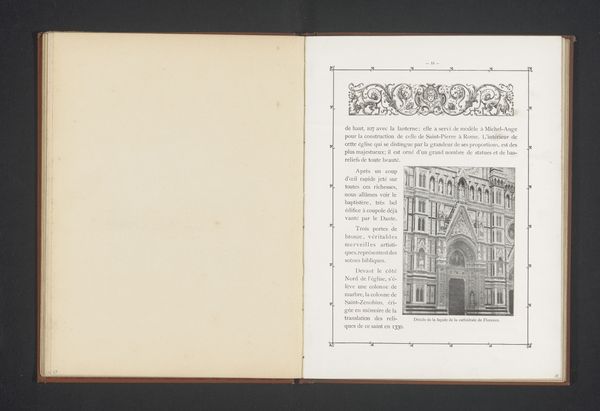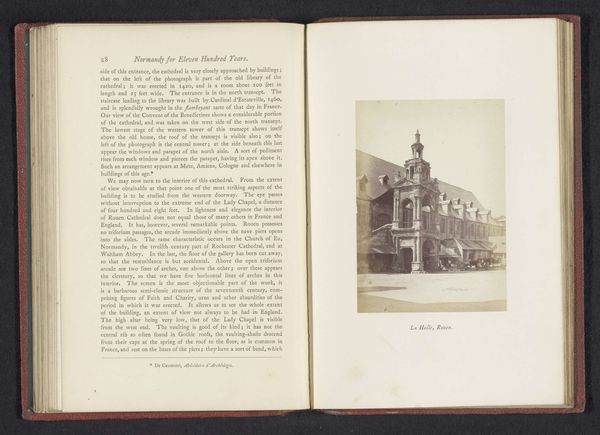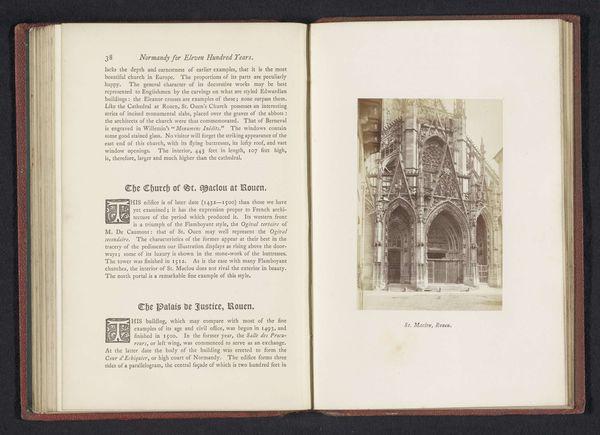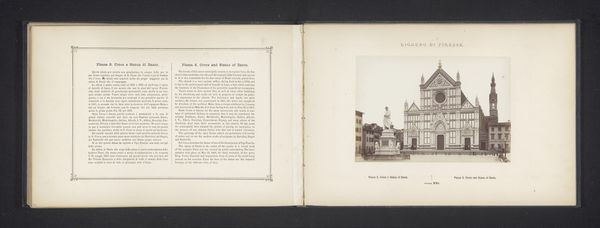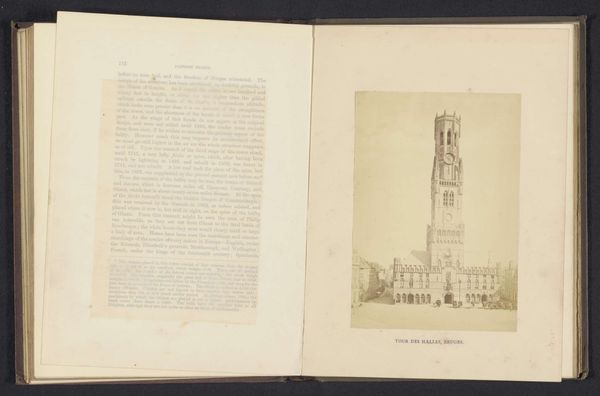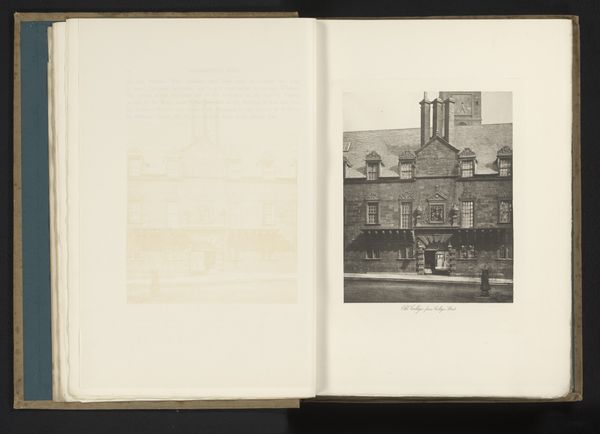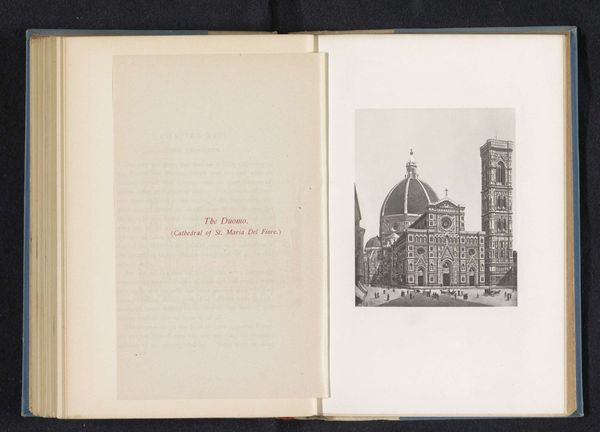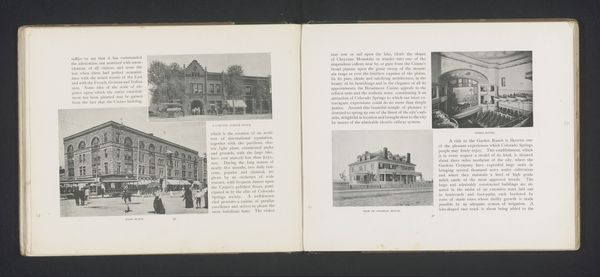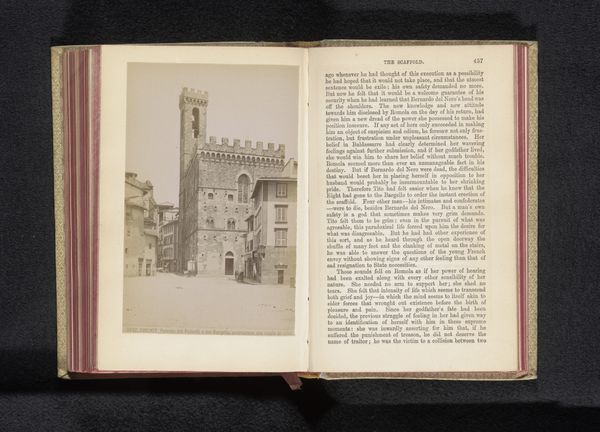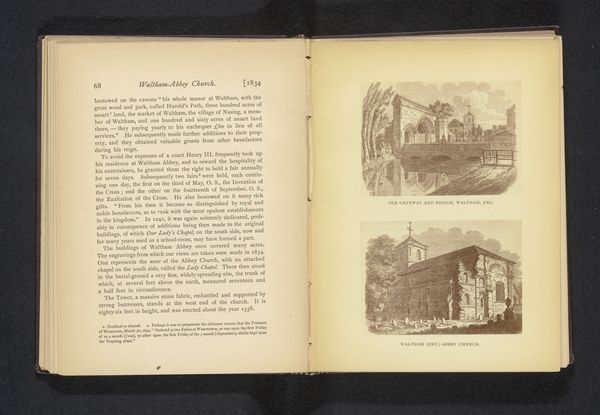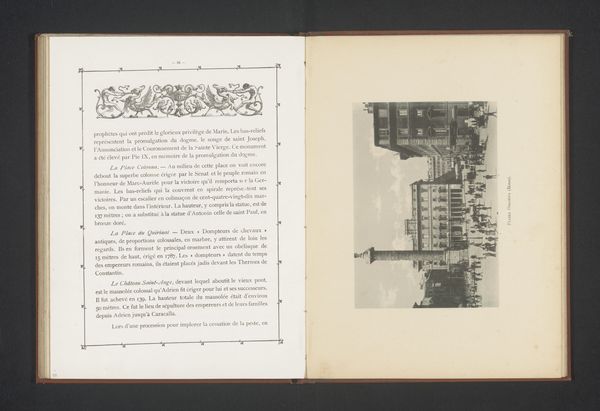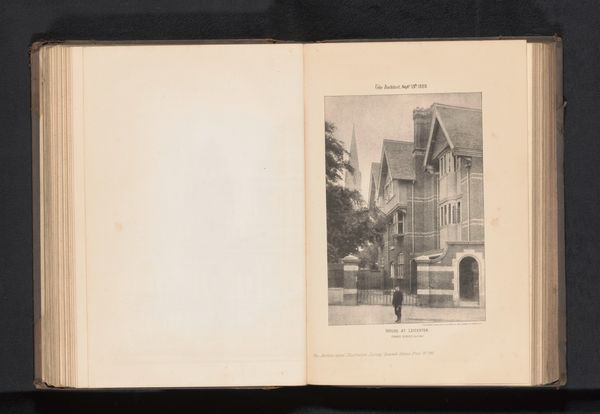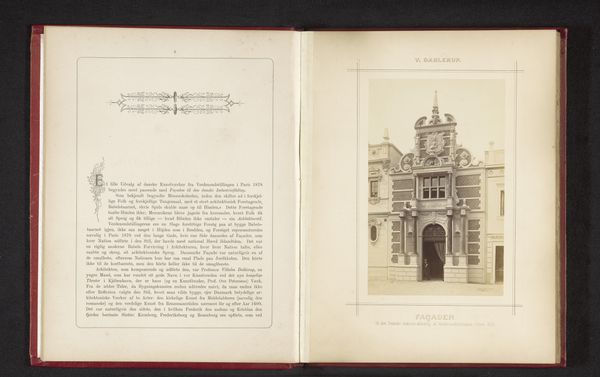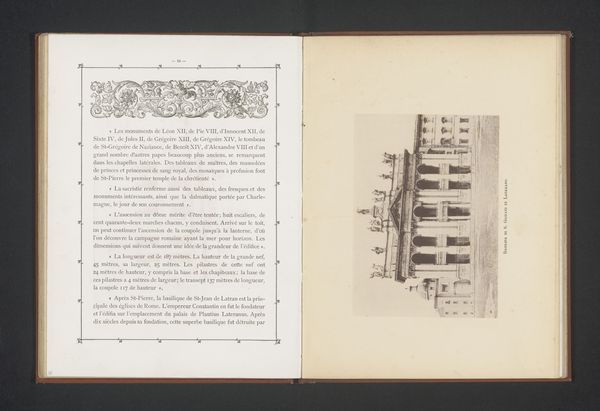
drawing, print, architecture
#
drawing
# print
#
perspective
#
cityscape
#
italian-renaissance
#
architecture
Dimensions: height 164 mm, width 115 mm
Copyright: Rijks Museum: Open Domain
Curator: What we’re looking at here is a print entitled “Gezicht op de Dom van Florence,” placing the emphasis squarely on that iconic cathedral. The print dates to before 1898 and is presented within what looks like an open book spread. Editor: Immediately, I notice the stark contrast and precise linework. The artist really emphasized the architectural details and verticality. There is an almost overpowering sense of scale. Curator: Scale is vital here, wouldn't you agree? The Duomo wasn’t simply a building, but a representation of civic power and spiritual aspiration during the Italian Renaissance. It physically embodied the city’s identity. Editor: And look how that geometric order—those rows upon rows of arches—conveys stability, almost a visual sermon on the enduring nature of faith and civic pride. What about the somewhat unusual perspective chosen by the artist? Curator: Ah, that’s interesting! The perspective, while seemingly straightforward, subtly shifts our focus upward, encouraging a sense of reverence towards the structure itself, and by extension, the cultural values that the Dom represents. Editor: Almost didactic in intent! The values literally encoded into the architecture as signifiers meant to shape viewers' understanding of the city. This careful composition seems deliberate. Curator: Precisely! The print becomes not just an image, but a potent symbol connecting past and present, recalling shared beliefs and cultural identity, while offering viewers a carefully chosen impression of Florentine character. Editor: It does speak to the cathedral's immutable presence throughout Italian history, and to architecture's potential to embody cultural memory. Curator: Well said. Looking at this drawing reminds me again about the staying power of symbols. They communicate values in such subtle yet pervasive ways. Editor: And I am again amazed at how close examination of technique and composition brings forth hidden intent behind the picture’s seemingly transparent presentation.
Comments
No comments
Be the first to comment and join the conversation on the ultimate creative platform.
